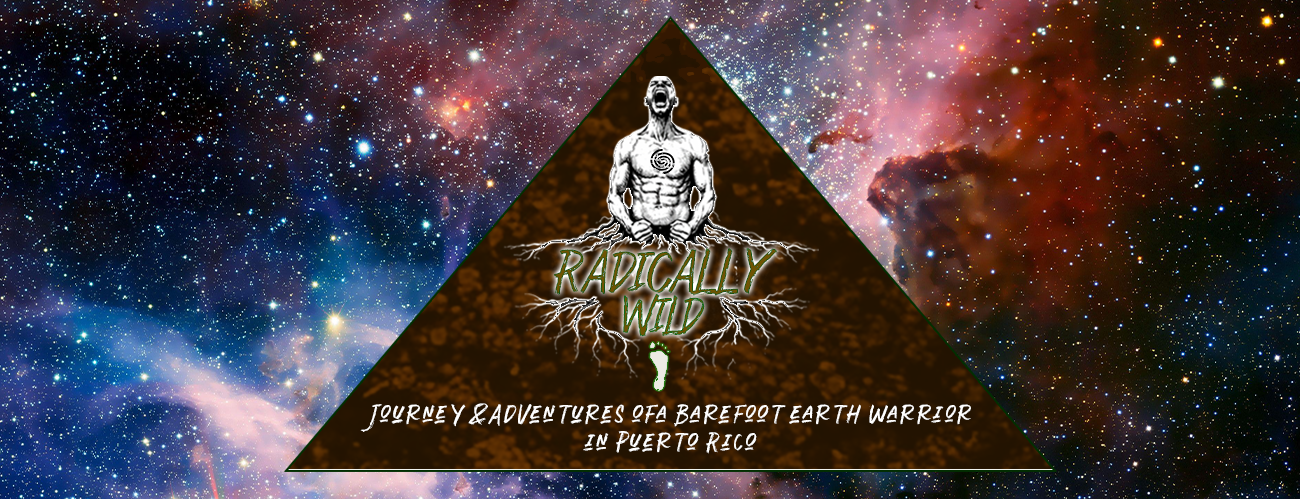Liquid Gold: Using Urine To Fertilize Your Garden
Urine to Fertilize your plants? You might be shaking your head , but here I will tell you about how beneficial it is to use urine to fertilize your plants.
Now many people would be disgusted by that I use urine to fertilize my plants because we live in a world where we close off our minds to the unknown because we conform to what society considers normal. But we have a wealth of information on this here internet to do the proper research. But I will provide some information as to why I use urine and share tips on how you can use urine as well.
I grow a wide range of things here in Puerto Rico from tomatoes to eggplants, corn and everything in between. You can
click here to see what I have grown in the always tropical Puerto Rico.
Everything grows nice and green and many people ask me for advice on what I use and many people would be surprised to hear when I tell them I use my own freshly and not squeezed URINE! Yes, my own urine from my healthy "veganized" body.
"We're all afraid of our own waste," Chris Peot, manager of resource recovery at DC Water, explains. But he thinks that response can be worked around—the necessary paradigm shift is already underway. "This is sort of our new mantra: There's no such thing as waste, only waste of resources," Peot says.
Nutrients in human urine
When we eat food, our kidneys filter out excess nutrients that our body is unable to use, and these nutrients are then expelled from the body in our urine. Our urine contains significant levels of nitrogen, as well as phosphorous and potassium (typically an N-P-K ratio around
11 – 1 – 2.5, similar to commercial fertilizers). Americans produce about 90 million gallons of urine a day, containing about 7 million pounds of nitrogen. Studies conducted in Sweden (
Sundberg, 1995; Drangert, 1997) show that an adult’s urine contains enough nutrients to fertilize 50-100% of the crops needed to feed one adult. Rather than importing nutrients for gardening, and exporting nutrients via the toilet, we can help close this loop by keeping our urine in the local food cycle. It can be especially beneficial for fertilizing in city environments where other local forms of fertility may be scarce due to lack of green spaces.
What’s in urine?
Urine, 95% of which is water, 2.5% of which is urea, and 2.5% of which is a mixture of minerals, salts, hormones, and enzymes, is not a toxic waste product. Urine is a blood byproduct and though it contains some body waste, it is non-toxic. In 1975, Dr. A.H. Free, published his book Urinalysis in Clinical Laboratory Practice, in which he presents a few critical nutrients found in urine:
Alanine, total ..... 38 mg/day
Arginine, total ..... 32 mg/day
Ascorbic acid ..... 30 mg/day
Allantoin ..... 12 mg/day
Amino acids, total ..... 2.1 g/day
Bicarbonate ..... 140 mg/day
Biotin ..... 35 mg/day
Calcium ..... 23 mg/day
Creatinine ..... 1.4 mg/day
Cystine ..... 120 mg/day
Dopamine ..... 0.40 mg/day
Epinephrine ..... 0.01 mg/day
Folic acid ..... 4 mg/day
Glucose ..... 100 mg/day
Glutamic acid ..... 308 mg/day
Glycine ..... 455 mg/day
Inositol ..... 14 mg/day
Iodine ..... 0.25 mg/day
Iron ..... 0.5 mg/day
Lysine, total ..... 56 mg/day
Magnesium ..... 100 mg/day
Manganese ..... 0.5 mg/day
Methionine, total ..... 10 mg/day
Nitrogen, total ..... 15 g/day
Ornithine ..... 10 mg/day
Pantothenic acid ..... 3 mg/day
Phenylalanine ..... 21 mg/day
Phosphorus, organic .....9 mg/day
Potassium ..... 2.5 mg/day
Proteins, total ..... 5 mg/day
Riboflavin ..... 0.9 mg/day
Tryptophan, total ..... 28 mg/day
Tyrosine, total ..... 50 mg/day
Urea ..... 24.5 mg/day
Vitamin B6 ..... 100 mg/day
Vitamin B12 ..... 0.03 mg/day
Zinc ..... 1.4 mg/day
During a pee, a healthy adult will release 11g nitrogen/urea, 1g phosphorus/super-phosphate and 2.5g potassium. Patrick Makhosi, a soil scientist with Uganda's Kawanda Agricultural Research Organisation, confirms the efficacy of human urine as a fertiliser. He says that applying urine to growing vegetables once every week for at least two months will more than double the yield
What is Urea?
What is urea? Urea is an organic chemical compound produced when the liver breaks down proteins and ammonia. Half the urea in your body remains in your bloodstream while the other half is mostly excreted through the kidneys as urine. A smaller amount is excreted through sweat.
What is urea? It is the largest component of modern commercial fertilizers. Urea fertilizer has nearly replaced ammonium nitrate as a fertilizer in large farming operations. Although this urea is artificially produced, its composition is the same as that produced by the body. Manufactured urea fertilizer can, therefore, be considered an organic fertilizer. It contains large amounts of nitrogen, which is essential for healthy plant growth.
See the connection? The same chemical compound that is industrially produced is manufactured by the human body. The difference is in the concentration of the urea. Fertilizer produced in the lab will have a more consistent concentration. When applied to the soil, both will convert to the ammonia and nitrogen needed by plants.
Is urine sterile?
Fresh human urine is sterile and so free from bacteria. In fact it is so sterile that it can be drunk when fresh (Which I don't do, I am open minded but I don't need to drink my own urine.); it’s only when it is older than 24 hours that the urea turns into ammonia, which is what causes the 'wee' smell. At this stage it will be too strong for use on plants, but poured neat on to the compost heap it makes a fabulous compost accelerator/activator, with the extra benefit of adding more nutrients.
Great for the environment
Using urine instead of disposing of it also cuts down on river pollution: urine is a major source of nitrogen, which, if an expensive denitrification process is not undertaken at the water treatment plant, can contribute to river eutrophication. Excessive levels of nutrients in our effluent systems leads to the growth of algae. Algal blooms can ultimately causes the death of plants and animals throughout our waterways.
Is this even vegan-organic?
According to the Veganic Agriculture Network, "That depends how you look at it. Using human urine isn’t a “plant-based technique,” so in its purest form it can’t be considered “plant-based growing”. However, all vegan-organic gardens naturally contain free-living animals, like microorganisms, earthworms, and birds, who eat organic matter and create “micro-manure” as part of their normal daily life.
So while vegan-organic growing excludes the addition of waste products from animals that have been bred and raised, humans can be seen as “free-living animals” who voluntarily contribute their waste. This can also help re-establish humans as contributing members of a local ecosystem, rather than separating ourselves (and our bodily waste) through mechanized processes."
What about the Taste of the Food?
As part of a research, blind taste tests were conducted. Tasters were unable to distinguish between the food grown with urine fertilizer, chemical fertilizer, and no fertilizer at all.
Is it safe?
is using urine to fertilize your plants safe?
Yes, absolutely. The only case it can be harmful if you have a serious infection, otherwise, it is quite safe. Most of the planting experts claim that there are very rare chances of disease transmission through pee at the household level. Also, the odor of pee will be gone in no time once you apply it on the soil.
How to use urine to fertilize your plants?
Dilute one part urine to 10-20 parts water for application on plants in the growth stage. Dilute in 30-50 parts water for use on pot plants, which are much more sensitive to fertilizers of any kind. Trees, shrubs and lawns are fine with undiluted urine, but for obvious reasons apply it underneath fruiting bushes, as opposed to directly on to foliage and fruit. Some fertilizers, such as seaweed, are specifically used as foliar feeds [applied direct to leaves], but urine is always best applied directly to a plant's root system.
Add Ashes for More Flowers, Fruits, and Roots
The high nitrogen content of urine makes it perfect for seedlings and leafy crops, but the low potassium content leaves it a bit skimpy on the stuff that flowers, fruits, and roots need. But we can fix that for free, too: Finnish researchers discovered that adding wood ashes to urine fertilizer for tomato plants resulted in sweeter fruit—and four times as much fruit! Adding wood ashes also boosted beet root size. This makes sense, since wood ashes have an N-P-K ratio of about 0:1:3, plus a lot of calcium. A handful of sifted wood ashes (save the chunks for the compost bin) will boost the potassium level in a bucket of liquid gold very nicely.
You can also sprinkle a handful of wood ashes over every 2 to 3 inches of new organic matter in the compost pile. But don’t go overboard: Ten to 15 pounds of wood ash a year is enough for a 1,000-square-foot garden. And if your soil is very alkaline, wood ashes might not be the best choice, as they make soil even more alkaline. Be sure to only use wood ashes from untreated wood (hardwoods’ ashes have the most potassium), avoid burning large amounts of glossy paper, and never, ever use coal ashes.
A Note on Salts
Urine contains significant levels of salt, which can build up in the soil in containers or even in garden beds when the climate is dry, injuring plants. Salt damage can show up as scorched-looking leaves; wilting, even when soil is moist; and stunted growth. There may even be a whitish crust on the surface of the soil. You can reduce salt buildup by watering generously (enough so that water runs out of the bottom of the pot after the soil is completely saturated) at least once a week.
Connection
I am very keen believer on connection with everything. Which is why I try to grow most of my own food. There is a connection and using my urine is a connection.
There is also the added pleasure of feeling that you are a more integrated part of the cycle of growth in your garden; in the loop, not exempted from it. Happy gardening - and remember these golden rules...
Keep it separate
Separate urine from other bodily waste to keep it sterile. Pee in a bottle or bucket, or invest in a urine-separating toilet.
Use it fresh
The smell of ammonia also indicates a drop in nutritional content. Use old urine directly on your compost heap
In closing, I am very healthy and I would not consider urine if you have a serious illness, unless if it is for your own consumption.
So, if you want a ready source of plant food that is perfectly balanced for your garden, that is absolutely free, available all year round, saves valuable drinking water and excessive use of cleaning chemicals, and limits the heavy use of fossil fuels in artificial fertilizer production, consider using your own urine.
Would you consider or use urine as a fertilizer? Do you find it disgusting and why? Please leave comments or questions down below. please share!
Peace love.. FREEDOM
More reading
Is "Peecycling" the Next Wave in Sustainable Living?

